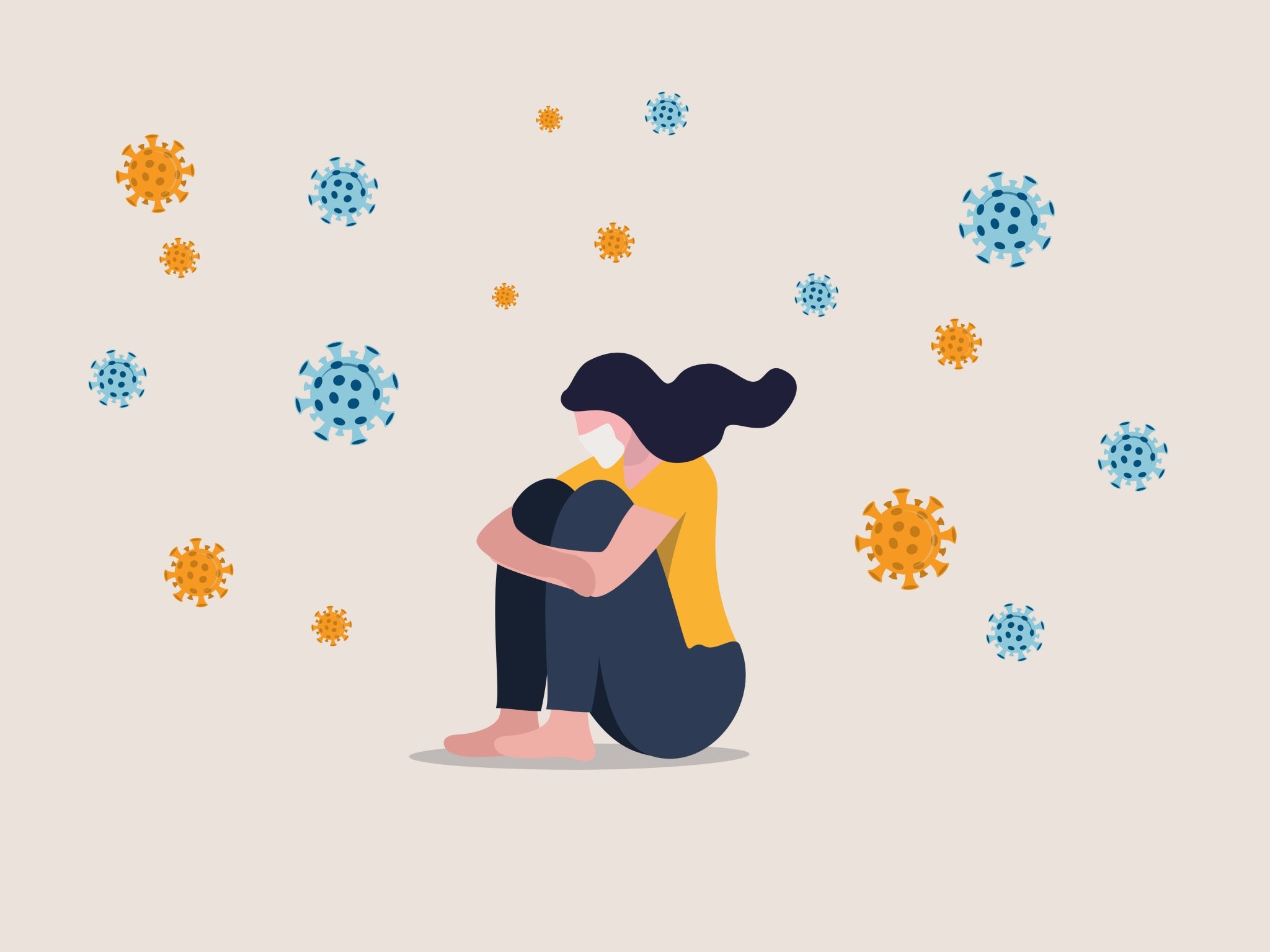Your support helps us to tell the story
From reproductive rights to climate change to Big Tech, The Independent is on the ground when the story is developing. Whether it's investigating the financials of Elon Musk's pro-Trump PAC or producing our latest documentary, 'The A Word', which shines a light on the American women fighting for reproductive rights, we know how important it is to parse out the facts from the messaging.
At such a critical moment in US history, we need reporters on the ground. Your donation allows us to keep sending journalists to speak to both sides of the story.
The Independent is trusted by Americans across the entire political spectrum. And unlike many other quality news outlets, we choose not to lock Americans out of our reporting and analysis with paywalls. We believe quality journalism should be available to everyone, paid for by those who can afford it.
Your support makes all the difference.A new Covid-19 variant is in town and it seems like everyone and their flatmate has it.
South Africa alerted the world to the new Omicron variant on 24 November after it detected the first case there, which resulted in the UK government moving the country to the travel “red list” and reinstating the mask mandate in England and Wales.
This red list has since been dropped as Omicron cases rise in the UK and England has seen record numbers of positive cases this week. On Friday 17 December, 93,045 new infections were confirmed.
We’ve effectively put our selves into self-isolation in a bid to avoid getting the virus so we can enjoy Christmas with our loved ones.
Even England’s chief medical officer, Professor Chris Whitty, has urged people to cut down on socialising and prime minister Boris Johnson has said a “tidal wave” of Omicron is coming, encouraging everyone to get their booster jabs.
With anxiety rising over the the variant and Christmas will pan out, psychiatrist Dr Natasha Bijlani tells The Independent that the pandemic has left many people feeling “quite powerless”.
“Powerlessness invariably leads to fear and anxiety, which then gives rise to many other possible negative consequences which can affect our physical as well as emotional health,” she explains.
“Many people are likely to be experiencing a sense of heightened anxiety now as the pandemic has continued to progress, with the development of the Omicron strain of the virus.”
Dr Bijlani says that, as the vaccine rollout continued and the festive season was in sight, people were beginning to feel “a semblance of security and hope” - but the emergence of the new variant has “shattered expectations” and left people feeling uncertain about the future again.
However, feeling some anxiety and fear around the new variant is not uncommon, as these are normal responses to threats or stress.
“Some fear and anxiety is actually a good adaptive response as it can be protective against being reckless or irresponsible,” says Dr Bijlani.
But “too much anxiety can lead to the development of mental ill health symptoms and unhelpful coping strategies”, such as drinking too much alcohol or turning to drugs, avoiding healthy activities, eating too much or too little, and self-medication.
How to manage Covid anxiety
In order to manage these emotions, Dr Bijlani says the first step is to identify and be aware of them.
“Admitting one’s vulnerability, whether it be to oneself or to others, does not diminish one’s resilience and actually can be a very helpful response,” she says, adding that recognising this can help people adopt strategies to manage the feeling of being overwhelmed.
“Try and remember that anxiety is a temporary emotion and can be changed - but it will take time and practice to do so,” she says.
She also encourages people who are feeling anxiety to keep up with their current routines and daily structure as long as they are getting enough sleep, eating well, and exercising, as well as doing hobbies and keeping in contact with other people.
“Try not to abandon good habits that you might have adopted during lockdown months such as reading, cooking fresh meals, meditating, going out for walks, or others.”

However, if being exposed to contact with others is a source of concern, Dr Bijlani recommends keeping in touch remotely or outdoors, just as people did when stricter coronavirus measures were in place.
Some people may find the barrage of news about the new variant overwhelming. If this is the case, Dr Bijlani advises people to limit exposure to the news cycle, “which will only serve to heighten your fear and anxiety”.
Talking to other people about feeling scared and anxious is also crucial to keeping mental health in check, and if things feel too severe to manage alone, seek professional support from a GP, counsellor or psychiatrist.
Dr Bijlani’s top tip for managing feelings of anxiety is to take deep, slow breaths. “When we become anxious, we frequently forget to breathe deeply and this can only worsen symptoms of anxiety,” she says. “Try to be aware of your breath, keep it slow and low. In doing so you will be able to feel physically and mentally less stressed.”
How to stop worrying about your Christmas plans
As for the risk of Christmas plans getting cancelled, Dr Bijlani says that at this stage, “no one is able to reliably predict whether or not we will be able to proceed with” them.
She adds: “But it is important to also realise that whatever the government advises, following medical guidance, it will be made in the best interests of the population.
“I do think it is important for the public to realise this and not to blame politicians and senior doctors for the situation. Worrying about it excessively will certainly not be helpful to any of us.”




Join our commenting forum
Join thought-provoking conversations, follow other Independent readers and see their replies
Comments